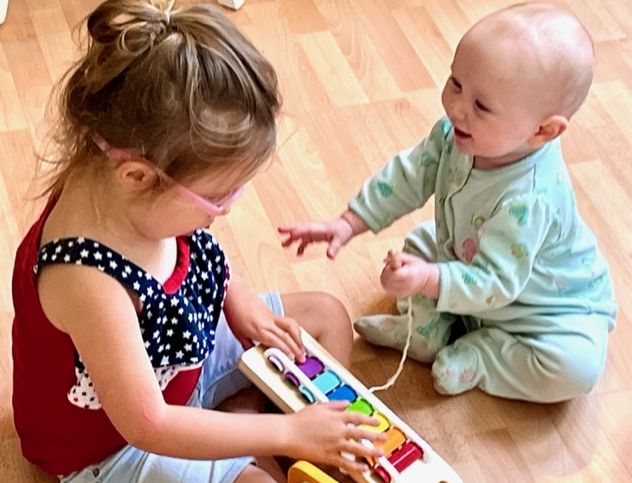Conversations with a Priest (Part 2): “You’ve done that.”
There were four major takeaways from my conversation/confession with Father Wyble the day before I went into labor with Cecilia. And I return to these four concepts again and again, as I try to process my grief. The first concept is that the death of Lizzy is my cross, which I will carry for the rest of my life, so therefore I need to decide what to do with that burden and that pain since it will be with me always.
The second concept was about parenthood. In the course of the conversation that day, I said to Father Wyble, “The job of a parent is to keep your children alive.” And he gently contradicted, “No, the job of a parent is to get your child into heaven. You’ve done that.”
My response to this was to say that Lizzy was in heaven because she was too young to sin or to do anything that would result in her going to any place other than heaven. She was a perfectly innocent, beautiful, and loving two-year old. Of course she was in heaven. I don’t believe that I had done anything to get Lizzy into heaven, other than obviously having her baptized.
On the surface, this also seemed to be a type of cheating. After all, I didn’t have to spend 50+ years trying to make sure Lizzy made the right decisions and was a good person so that she could go to heaven. She was simply born, and I loved her, and she loved me. That was the beginning, the middle, and the end of our story. I didn’t do much of anything to make Lizzy as wonderful as she was; she simply was wonderful. She was a gift, and I was blessed to receive and take joy in that gift more than anyone else in her life.
So, in terms of solace, thinking that I’ve gotten my child into heaven doesn’t go very far for me, mostly because I didn’t do much of anything to accomplish that goal. I didn’t work for it. Lizzy just was, and now she is–eternally.
No, I think what I took away from this part of the conversation is that the job of a parent is bigger than just keeping your child alive. It’s about what the life of the child is while the child is living, and it’s about what that life leads you and your child to after death. After all, there are plenty of parents who can give their children all of the nutritional, medical, physical, and educational care in the world but restrict or deny the emotional and spiritual care. I know, without doubt, that I gave Lizzy all of myself, without reservation, and that, in return, she gave me all of herself. She was, in fact, the purity of self-giving. And so what we shared was the richest and deepest human connection I have ever known.
As a parent, there is no way to not feel as though you have failed when your child dies. It is unavoidable and inescapable. I deal with this guilt and trauma every day, trying to figure out the myriad “what-if’s” and possibilities of how I could have loved or cared for her better than I did. What Father Wells did for me when he said “You’ve done that,” was to expand and reorient my definition of my job as a parent. I know with certainty that loving Lizzy does not end when I die. I will, with whatever I am after death, continue to love her with everything that I am. Therefore, I know that, in some manifestation, I will still (and always) be her mother. What is between us cannot be erased by death. Therefore, the job of a parent–the identity of a parent–outlives both the child’s and the parent’s finite, human lives.
What I’ve done is loved and given myself to an extraordinary, luminous little person who shared with me every second of the two years she had on this planet. Now that she is no longer here in the same way, she is in a place of radiance and ultimate belonging because of her purity, her luminescence, her innocence. What I’ve done is loved her. Lizzy is in heaven because of who and what she was, not because of me. And I–stuck here in this morass of unknowing–am left to try and define who I am and what my life’s purpose is. Therefore, knowing that my parenthood stretches beyond death is a gift, because it means there is still something to look forward to. It means that one day, on a clock that is not my clock and a timeline that is not my timeline, I have more of life–a different kind of life–left to live with Lizzy.

